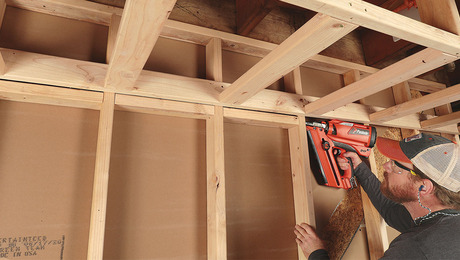After working 24/7 for the railroad/s, I’m at a point where I’m burned-out and fed up. Is 49 too old for a contractor to take a chance on a newbie apprentice? After working on ships (elex/elec), rebuilding houses and building my own shack, I’m not a complete rookie, but would like to do it correctly (like I should have years ago). Any comments from elec contractors near pdx/van? Thanks for your opinions.
Discussion Forum
Discussion Forum
Up Next
Video Shorts
Featured Story

The code requires installing an approved material to slow the spread of fire between floors and adjacent vertical and horizontal cavities — here are the allowed materials and required locations.
Featured Video
How to Install Exterior Window TrimHighlights
"I have learned so much thanks to the searchable articles on the FHB website. I can confidently say that I expect to be a life-long subscriber." - M.K.

















Replies
I gues those who live there know what PDX and VAN mean ...
"When asked if you can do something, tell'em "Why certainly I can", then get busy and find a way to do it." T. Roosevelt
PDX = Portland (Oregon)
VAN = Vancouver (Washington)
Thanks for the attention to detail :)
There is no denying that age will be a factor .... running up and down ladders all day is a young mans' game! Yet, electric work is not all about that; there's a lot of "brain work" involved as well.
Most places have at least two apprenticeship programs; Union and non-Union. Apply to both.
Most apprenticeship programs also have an arrangement with the local community college to provide college credit for the classes. What does this mean? It means that if you show up, cash in hand, they can't refuse to let you take the courses. You won't be "in" the program, but you'll be getting the coursework.
Likewise, there are many community college programs in things like "industrial maintenance," things that have lots of relevance to the electrical trade.
You're going to hear "NO" a lot ... but keep plugging away. Many contractors are getting tired of spoiled kids washing out of the programs, and dealing with their poor work habits. Some are even beginning to realize that a 'slow and steady' performer beats a 'flash in the pan' any day of the week.
Don't be shy about sharing your other skills. A small contractor will especially like a guy who can fix a roof, patch drywall, etc. These are skills incidental to electric work - and mighty expensive to hire someone to do.